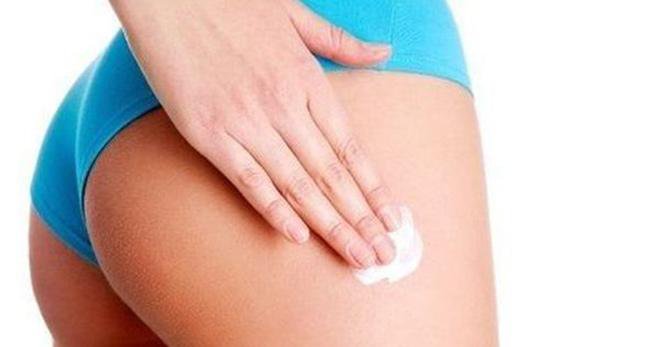Why Do I Get Cystic Acne on My Butt? It's here: A Deep Dive with Approved Technology
For many, dealing with acne can be a distressing and frustrating experience. But what about when that acne appears on your buttocks? This specific type of acne, known as cystic acne, can be particularly painful and stubborn. In this article, we will delve into the reasons behind the occurrence of cystic acne on your buttocks and explore some approved and effective technologies to manage it.

Understanding Cystic Acne
Cystic acne is a severe form of acne that occurs when the skin's pores become blocked, leading to infection and inflammation. The resulting cysts are large, red, and can be quite painful. While cystic acne is more commonly found on the face, it can also develop on other parts of the body, including the buttocks.

Why Do I Get Cystic Acne on My Butt?
Cystic acne on the buttocks can occur for several reasons, and understanding these causes can help you take steps to prevent and treat it. Here are some common factors:
1. Poor Hygiene
One of the primary reasons for cystic acne on the buttocks is poor hygiene. The buttocks are often a neglected area when it comes to thorough cleansing, and sweat, dirt, and bacteria can accumulate, leading to blocked pores and eventual cyst formation. For tips on maintaining hygiene, check out hygienic shower tools.
2. Tight Clothing
Tight-fitting clothing, especially non-breathable fabrics, can trap sweat and bacteria against the skin. This creates an ideal environment for bacteria to thrive, leading to inflammation and acne development. For more insights on healthy lifestyle choices, see Healthiest Body Wash.
3. Hormonal Changes
Hormonal fluctuations, particularly during puberty, pregnancy, or due to certain medical conditions, can cause the sebaceous glands to overproduce oil. This excess oil can clog pores and lead to the formation of acne cysts.
4. Lifestyle Factors
Unhealthy lifestyle choices, such as a poor diet, lack of exercise, and high stress levels, can also contribute to the development of cystic acne on the buttocks. These factors can influence the body's overall health and skin condition. Discover more on lifestyle adjustments in Pumpkin Spice Blend.

Approved Technologies and Treatments for Cystic Acne on the Buttocks
Thankfully, there are approved technologies and treatments available that can effectively manage and treat cystic acne on the buttocks. Here are some of the most common and effective options:
1. Topical Treatments
Over-the-counter and prescription topical creams and gels containing ingredients like benzoyl peroxide, salicylic acid, and retinoids can help reduce inflammation and clear blocked pores. These treatments are often the first line of defense against acne.
2. Oral Medications
In more severe cases, dermatologists may prescribe oral medications such as antibiotics, hormonal treatments, or isotretinoin. These medications work on a systemic level to reduce inflammation and control oil production.
3. Laser and Light Therapies
Advanced technologies like laser and light therapies can effectively target and destroy acne-causing bacteria, reduce inflammation, and promote skin healing. These non-invasive treatments can be particularly beneficial for stubborn cystic acne.
4. Lifestyle and Dietary Changes
Adopting healthier lifestyle habits, such as maintaining a balanced diet, staying hydrated, exercising regularly, and managing stress, can help improve your overall skin health. Avoiding tight clothing and practicing good hygiene can also prevent future outbreaks. Explore more in Magic Coffee Blend.

Prevention Tips for Cystic Acne on the Buttocks
Preventing cystic acne on the buttocks is possible with the right habits and precautions. Here are some tips to help you keep your skin clear and healthy:
1. Keep Clean
Regularly cleanse the skin on your buttocks with a gentle antibacterial soap to remove sweat, dirt, and bacteria. Ensure you thoroughly dry the area to prevent moisture buildup.
2. Wear Breathable Clothing
Opt for loose-fitting, breathable fabrics like cotton to allow air circulation and reduce the risk of clogged pores. Avoid tight clothing that traps sweat against the skin.
3. Exfoliate Regularly
Gently exfoliate the buttock area once or twice a week using a mild scrub to remove dead skin cells and unclog pores. Be cautious not to over-exfoliate, as it can irritate the skin.
4. Stay Hydrated
Drink plenty of water throughout the day to keep your skin hydrated and promote detoxification. Proper hydration can help maintain skin elasticity and reduce the risk of acne. Read more on the benefits of hydration in Expired Body Wash.
5. Manage Stress
Practice stress-reduction techniques such as meditation, yoga, or deep breathing exercises to keep your stress levels in check. Chronic stress can contribute to hormone imbalances and acne breakouts.
FAQs about Cystic Acne on the Buttocks
1. Can diet affect cystic acne on the buttocks?
Yes, diet can play a role in the development of cystic acne. Consuming a healthy and balanced diet rich in fruits, vegetables, and whole grains can promote clear skin and reduce inflammation.
2. Are there any home remedies for treating cystic acne on the buttocks?
While home remedies like tea tree oil, aloe vera, and apple cider vinegar may help reduce mild acne symptoms, it's best to consult with a dermatologist for effective treatment options for severe cystic acne.
3. How long does it take for cystic acne on the buttocks to heal?
The duration of healing can vary depending on the severity of the acne and the chosen treatment method. With proper care and treatment, cystic acne can start to improve within a few weeks, but complete healing may take several months.
For more detailed information on acne and its treatments, click here.
As an Amazon Associate, I earn from qualifying purchases.

